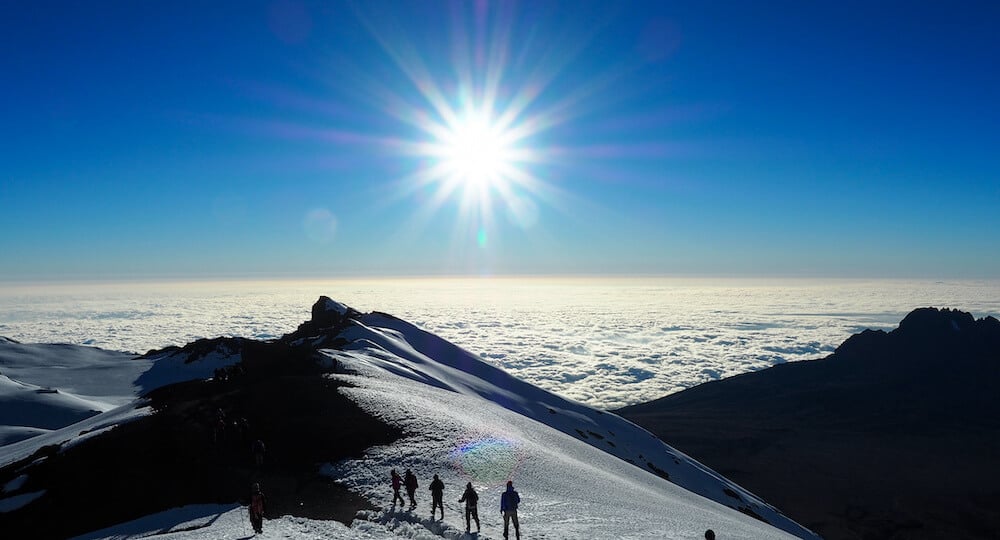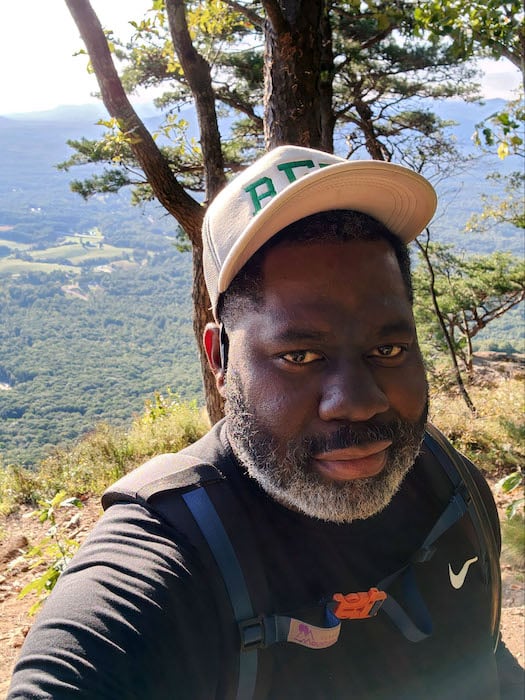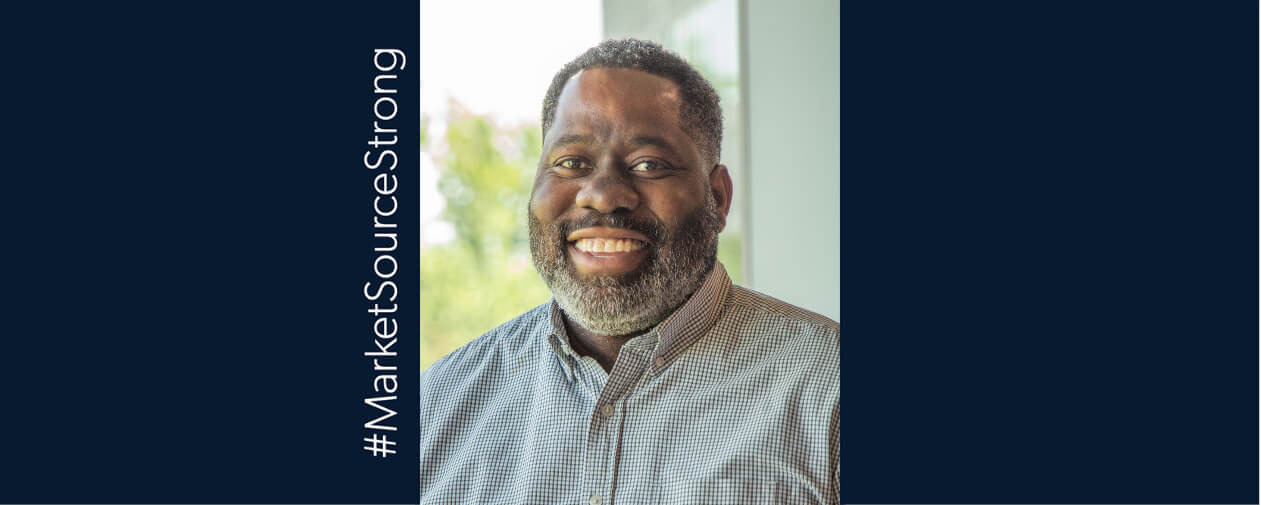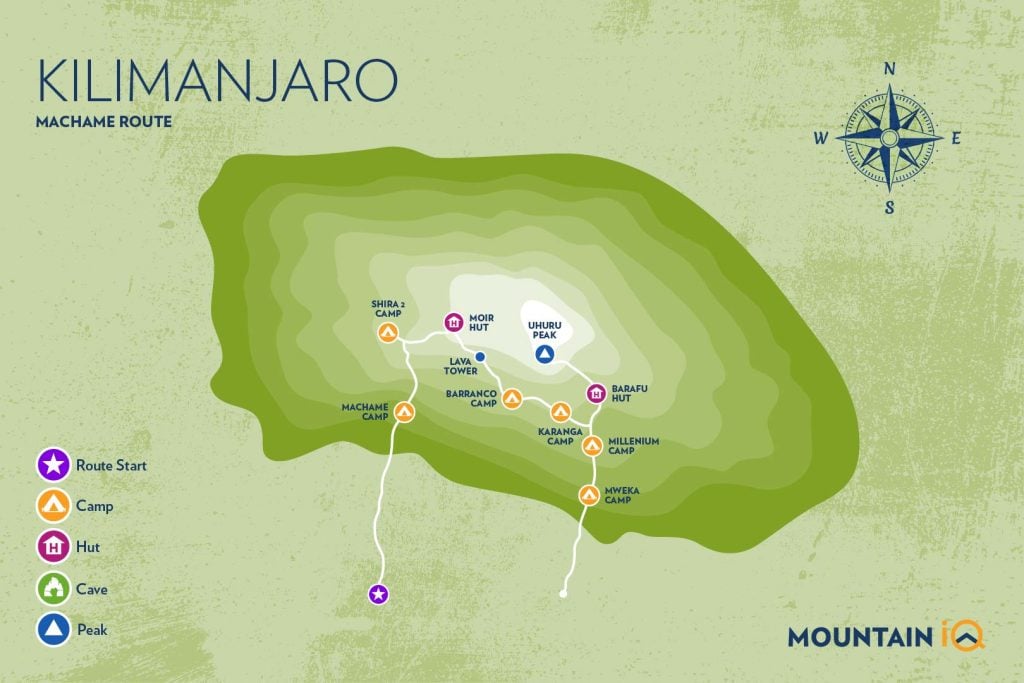Vander Bannister to Summit Mt. Kilimanjaro to Raise Awareness for Mental Health
As a young man growing up in Baltimore, Vander Bannister never expected to be getting ready to summit Mt. Kilimanjaro 20 years later, but here he is. After moving to Atlanta in 2018, he wrote 50 goals for his life. Mt. Kilimanjaro appeared on it. After a serendipitous conversation in a MarketSource office elevator the following day with a colleague who was planning to do that very thing, it became clear to him that he needed to make this happen, and now.
The hike was to be a challenge event in 2020 to raise funds for the Mental Health Foundation, culminating in a summit on World Mental Health Day (Oct. 10). After further consideration, his colleague opted out of the trek, and the Foundation later postponed it because of Covid-19. Two years later, he’s ready to make the trek, alone this time.
And what a trek it will be! At 19,340 feet, Mt. Kilimanjaro is the highest freestanding (not part of a range or group of mountains) mountain in the world. The journey up the mountain and back will take him six days round trip (four or five days up, and one day down), traversing different environments and altitudes as he and his group progress toward the summit. Each day’s hike can take from four to 12 hours, depending on their pace and/or the conditions. He chose it because, while he likes adventure, Kilimanjaro is not a climb that requires ice axes, belays, or carabiner systems to complete.
To prepare himself mentally and physically, Vander has been riding both stationary and mountain bikes and doing calisthenic programs like P90X. He’s been pairing this cardio work with weekly walks and at least one weekend hike on a trail with decent elevation with his wife and son. With the summit drawing closer, he’s made the last few hikes alone due to their increased intensity. His last prep hike was roughly 9.5 miles, with 3,000 feet of elevation gained. He also does visualization exercises, where he pictures himself on and successfully completing the trek. During his weekend hikes, he envisions parts of the trek where he’s read that people often turn around.

Roughly 50,000 trekkers every year try to reach the summit of Mt. Kilimanjaro. According to research by the Climb Kilimanjaro Guide, the average summit success rate across all climbers and routes is 65%. Because of his preparation and mental fortitude, he’s confident he’ll be able to finish.
Vander is trying to limit how much he reads about other people’s experiences so he can have his own experience and be present to the moment. He also plans to journal along the way. One day involves 10-12 hours of hiking, which he hopes will give him lots of time to think.
Here is the rest of our conversation about his momentous journey.
Sarah: What brought you to the foot of this mountain at this moment in your life?
Vander: When I found out about George Floyd, it immediately brought the Rodney King incident flooding back to me. From that moment, everything shifted for me. I began to wonder if things would ever be different, and I struggled to find evidence that they might. Since then, I discovered a less-known mental health condition called race-based traumatic stress (RBTS). You can suffer from it even if you don’t experience the trauma first-hand. Like PTSD, the symptoms are avoidance, anger, depression, recurring thoughts of the event, insomnia, chest pains, etc. I’ve seen my son experience it, and George Floyd triggered it for me.
This wasn’t my first experience with mental health challenges. I had a dangerous bout with depression in my early 20’s. During that time, my awareness of my own mental health really grew. I didn’t realize how bad things had gotten, and I empathize with anyone who faces similar obstacles.
Back then, I wouldn’t have believed my life could be as wonderful as it is now. I’m not sure why I chose to start being transparent about my story now, but I hope it helps others.

It sounds cool to say you care about mental health, but there’s not enough work being done to address the wide spectrum of issues people are facing. One of my goals is to be a resource for others and to provide them actionable things they can do to learn about mental health (such as self-assessments, the impact of your diet).
Sarah: How does your experience affect your work life?
Vander: I believe in the power of culture to create an environment where people can bring their whole selves to work, and we must be intentional about culture until it becomes normal. MarketSource does a great job with this.
We’re a whole person at work, and things outside of work are going to impact our ability to perform. My team plays a strong role in the culture. I check in with them regularly about their mental health, and I am transparent with them when I need to take time or space to return to my best self. It helps them know I take their mental health seriously and encourages them to be transparent, too. When they’re having bad days, I tell them, “There are people who care about you and are counting on you. Do what you need to do to take care of yourself.”
From a facilities perspective, we’re one of the first teams to know about new hires. How we treat them is critical. We ask ourselves, “How can we be more intentional about making them feel valued and productive?” That initial impression shapes how they feel about coming to work over the long term. I’m currently driving an initiative to embrace new hires and introduce them to folks outside their team and to make sure they have things to do and set goals in their first week. It goes a long way toward establishing employee goodwill, which pays big, short- and long-term dividends.
You don’t know what it may take for each of us to show up for work on any given day. If we forget people are people, the work isn’t going to get done, because they’re not present. It’s essential we prioritize caring well for each other, and I believe part of my job is to communicate that to my leadership.
Trek with Vander! (Virtually)
Vander felt uncomfortable asking people to donate during COVID, because he knew many people who were impacted financially, and he just didn’t feel right asking them to contribute under the circumstances. So, he just began fundraising again in August. “The amount of support I’ve received has been amazing,” Vander says. “I’m blown away by the generosity I’ve witnessed. Whether in the form of morale or financial, the support is so encouraging to me.”
He won’t have any communication options other than a satellite phone for emergencies, so he plans to send messages up until the last minute. And he’s prepared his family to expect no news, which is good news.
While you can’t text him, you can follow Vander’s adventures and/or donate at www.justgiving.com/rbts. Although he won’t have mobile service on his climb, we’ll be cheering him on his noble mission from afar. Want to join us? Join us on social and follow/use #MSVanderSummit.
Vander Bannister, Corporate Facilities Manager for MarketSource, was born and raised in Baltimore, Maryland. He now lives in Buford, Georgia with his wife of 16 years and his 15-year-old son. He’s been with the Allegis family of companies since January 2008, when he led the Print Services Team. The last four have been with MarketSource, where he strives to lead with intention and compassion.



